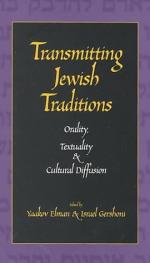|
This section contains 4,200 words (approx. 14 pages at 300 words per page) |

|
The concept of diffusion inherently focuses upon process. Diffusion refers to the dissemination of any physical element, idea, value, social practice, or attitude through and between populations. Diffusion is among the rare concepts used across the physical, natural, and social sciences, as well as in the arts. Diffusion is most closely associated with the social sciences, particularly rural sociology, anthropology, and communication. Diffusion thinking offers a logic through which to describe and perhaps explain myriad types of change that involve equally diverse foci, ranging from the adoption of internet technology (Adams 1997), to the spread of belief systems (Dean 1997).
Work connected to the concept of diffusion is arguably structured as theory. Certainly there is no single, unified, deductively structured collection of propositions, widely regarded by social scientists as identifying the principal mechanisms of diffusion that could be employed across all substantive areas. There are however, many distinct...
|
This section contains 4,200 words (approx. 14 pages at 300 words per page) |

|


